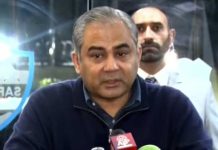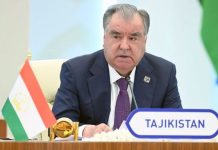UNITED NATIONS, MAY 13 (DNA) — Amid financial strain and growing global challenges, UN Secretary-General Antonio Guterres is pushing for wide-ranging structural reforms to enhance the world body’s effectiveness. Briefing member states in New York on Monday, the UN chief outlined wide-ranging effort to revamp how the UN system operates – cutting costs, streamlining operations, and modernizing its approach to peace and security, development and human rights.
“These are times of peril,” he said, “but they are also times of profound opportunity and obligation. The mission of the United Nations is more urgent than ever.” Launched in March, the UN80 Initiative centres on three priorities: enhancing operational efficiency, assessing how mandates – or key tasks – from Member States are implemented, and exploring structural reforms across the UN system.
The conclusions will be reflected in revised estimates for the 2026 budget in September this year, with additional changes that require more detailed analysis presented in the proposal for the 2027 budget.Guterres said the changes are expected to yield “meaningful reductions” in the overall budget.
For example, the departments for political and peacekeeping affairs could see a 20 per cent reduction in staff by eliminating duplication.This level of reduction, he said, could serve as a benchmark across the UN system – while also considering unique factors for each department.
Additional examples include consolidating all counter-terrorism work within the main Office of Counter-Terrorism (UNOCT), ending building leases and relocating posts away from expensive “duty stations” where cost of living is high.
“There might be immediate, one-off costs involved in relocating staff and providing potential termination packages,” he said, “but by moving posts from high-cost locations, we can reduce our commercial footprint in those cities and reduce our post and non-post costs.”
The first workstream focuses on efficiencies and improvements, developing a new model that improves consolidation, looks at centralizing services, relocating to cheaper locations, and expanding the use of automation and digital platforms.
Guterres said departments at the UN’s headquarters in New York and Geneva have been asked to review whether some teams can be relocated to lower-cost duty stations, reduced or abolished.The second workstream involves a review of how existing mandates are being carried out – not the mandates themselves, which are the purview of Member States only.
A preliminary review identified more than 3,600 unique mandates for the Secretariat alone. A full and more detailed analysis is now underway. Guterres emphasized that the sheer number of mandates – and the bureaucracy needed to implement them – places a particular burden on smaller Member States with limited resources.
“Based on this work, Member States may wish to consider the opportunity to conduct themselves a review of the mandates,” he added.The third workstream – focused on structural reform – is already underway, Guterres said.—DNA

















